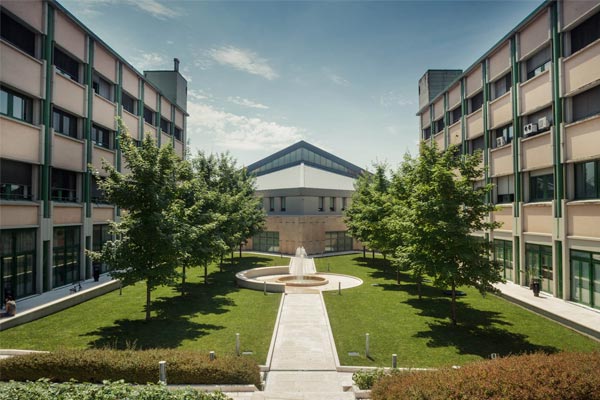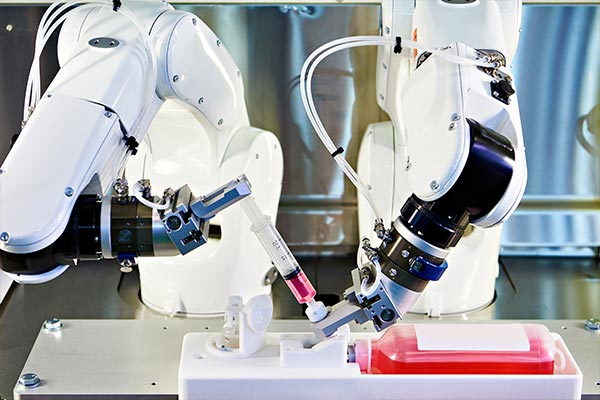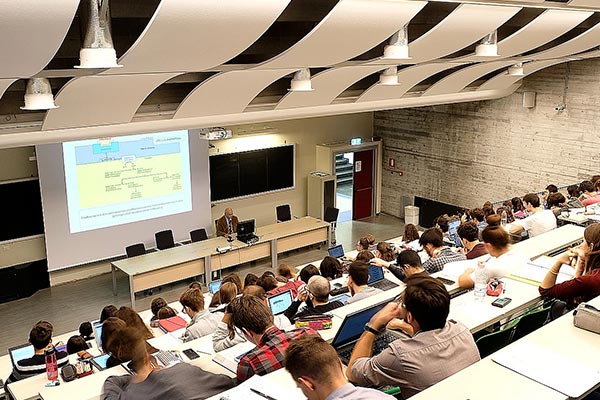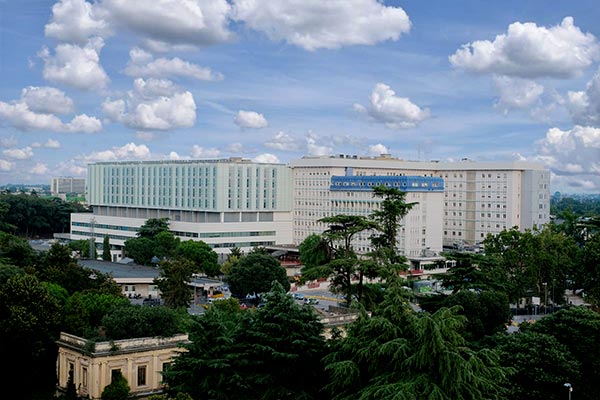- Authors:
-
Morgan, G; Tagliamento, M; Lambertini, M; Devnani, B; Westphalen, B; Dienstmann, R; Bozovic-Spasojevic, I; Calles, A; Criscitiello, C; Curioni, A; Garcia, A M; Lamarca, A; Pilotto, S; Scheffler, M; Strijbos, M; Wong, R; de Azambuja, E; Peters, S
- Title:
-
Impact of COVID-19 on social media as perceived by the oncology community: results from a survey in collaboration with the European Society for Medical Oncology (ESMO) and the OncoAlert Network
- Year:
-
2021
- Type of item:
-
Articolo in Rivista
- Tipologia ANVUR:
- Articolo su rivista
- Language:
-
Inglese
- Referee:
-
No
- Name of journal:
- ESMO OPEN
- ISSN of journal:
- 2059-7029
- N° Volume:
-
6
- Number or Folder:
-
2
- Page numbers:
-
100104-100111
- Keyword:
-
COVID-19; cancer; oncology; social media; virtual congress
- Short description of contents:
- Background: The COVID-19 pandemic has impacted all aspects of modern-day oncology, including how stakeholders communicate through social media. We surveyed oncology stakeholders in order to assess their attitudes pertaining to social media and how it has been affected during the pandemic.Materials and methods: A 40-item survey was distributed to stakeholders from 8 July to 22 July 2020 and was promoted through the European Society for Medical Oncology (ESMO) and the OncoAlert Network.Results: One thousand and seventy-six physicians and stakeholders took part in the survey. In total, 57.3% of respondents were medical oncologists, 50.6% aged <40 years, 50.8% of female gender and mostly practicing in Europe (51.5%). More than 90% of respondents considered social media a useful tool for distributing scientific information and for education. Most used social media to stay up to date on cancer care in general (62.5%) and cancer care during COVID-19 (61%) given the constant flow of information. Respondents also used social media to interact with other oncologists (78.8%) and with patients (34.4%). Overall, 61.1% of respondents were satisfied with the role that social media was playing during the COVID-19 pandemic. On the other hand, 41.1% of respondents reported trouble in discriminating between credible and less credible information and 30% stated social networks were a source of stress. For this reason, one-third of respondents reduced its use during the COVID-19 pandemic. Regarding meeting attendance, a total of 59.1% of responding physicians preferred in-person meetings to virtual ones, and 51.8% agreed that virtual meetings and social distancing could hamper effective collaboration.Conclusion: Social media has a useful role in supporting cancer care and professional engagement in oncology. Although one-third of respondents reported reduced use of social media due to stress during the COVID-19 pandemic, the majority found social media useful to keep up to date and were satisfied with the role social media was playing during the pandemic.
- Product ID:
-
133964
- Handle IRIS:
-
11562/1094610
- Last Modified:
-
May 28, 2023
- Bibliographic citation:
-
Morgan, G; Tagliamento, M; Lambertini, M; Devnani, B; Westphalen, B; Dienstmann, R; Bozovic-Spasojevic, I; Calles, A; Criscitiello, C; Curioni, A; Garcia, A M; Lamarca, A; Pilotto, S; Scheffler, M; Strijbos, M; Wong, R; de Azambuja, E; Peters, S,
Impact of COVID-19 on social media as perceived by the oncology community: results from a survey in collaboration with the European Society for Medical Oncology (ESMO) and the OncoAlert Network
«ESMO OPEN»
, vol.
6
, n.
2
,
2021
,
pp. 100104-100111
Consulta la scheda completa presente nel
repository istituzionale della Ricerca di Ateneo 








